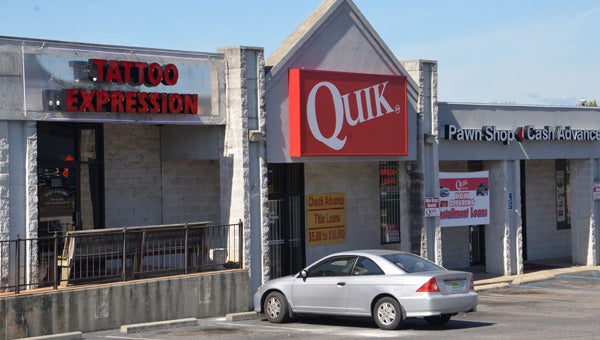Pelham council introduces amended business license moratorium
Published 4:32 pm Tuesday, May 16, 2017

- The Pelham City Council approved a zoning ordinance allow business licenses for certain businesses only with the approval of the City Council at its meeting on May 23. (File)
PELHAM – With the city’s current business license moratorium set to expire on May 31, the Pelham City Council conducted the first reading of an amended zoning ordinance relating to new business licenses for certain businesses at its meeting on Monday, May 15.
In 2014, the city adopted its first business license zoning ordinance declaring a one-year moratorium on the issuance of business licenses for payday loan, car title loan, check cashing, gold and silver brokers, tattoo parlors, pawn shop, vape shop, tobacco shop and used automobile sales businesses.
Each year the city has opted to extend the moratorium and along the way it was amended the state that the “City Council may approve the issuance of a business license for an existing business which is subject to the moratorium on a case-by-case basis upon application to the City Council.”
The amended ordinance presented for a first reading at the May 15 meeting introduces new aspects into the moratorium. The ordinance now extends to massage parlors and includes a two-tiered structure that includes the Commercial Development Authority as an advisory body for certain businesses seeking a business license.
The ordinance states that the moratorium does not apply to banking or lending institutions that are insured and regulated by agencies of the United States or the state of Alabama.
Businesses asking for an exception will be reviewed by the CDA board first and the CDA board will present their findings and make a recommendation to the council, which will make the final decision on whether to issue a business license.
The proposed ordinance also includes a new 1-mile radius distance separation restriction. Automobile sales businesses are exempt from this restriction.
Existing businesses are grandfathered in at their current locations.
Councilman Ron Scott said the proposed ordinance is impressive and offers stronger protection that what the city currently has.
“I think the CDA is the appropriate venue for a first review,” he said. “This is a better vehicle to accomplish what we’re trying to accomplish. It’s comprehensive and I like the two-tiered structure.”
Councilman Maurice Mercer added that the council sought input from the CDA board and the Planning Commission while making changes to the ordinance.
“I love putting more people in the process,” Mercer said. “That makes it more fair for everybody.”
But Pelham business owner Glenn Wills is still worried. He owns G’day Vape located on Pelham Parkway and his store’s lease is set to expire at the end of June. Wills said the property owner notified him in February that his lease will not be renewed and the space his store occupies is going to be used to expand an existing business in the shopping center.
Wills approached the council seeking their approval to relocate his business.
“I run an honest and ethical business and I’ve never had any legal, police or tax issues,” Wills said. “I have almost 1,400 regular customers and if I can’t relocate, it will put me out of business.”
Willis said he has found another location in Pelham to relocate to, but he needs the council’s approval to do so. He said losing his business would be financially devastating to him and his family because most of his life savings are tied up in the business.
The moratorium does not allow businesses to open second locations or move to a new location.
Scott said the moratorium is something that was driven by Pelham residents, not by any one council member’s agenda. During the 2012 City Council race, Scott said he learned while campaigning that Pelham residents are most interested in the city’s school system, the appearance of U.S. 31 and state of the city’s retail sector.
“We didn’t put anyone out of business and allowed the ebb and flow of commerce to take place,” he said. “The goal is to attract the higher end retailers that people would like to see. We have received positive feedback from the community about the moratorium.”
Despite concerns that sales tax revenues would decrease as a result of the moratorium, Scott said revenues from sales taxes have increased each year over the past two years.









